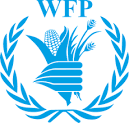WFP in Africa is Recruiting Information Management Officer (Closes 17/08/23)
WFP in Southern Africa

The United Nations World Food Programme is the world’s largest humanitarian agency fighting hunger worldwide. The mission of WFP is to end global hunger. Every day, WFP works worldwide to ensure that no child goes to bed hungry and that the poorest and most vulnerable, particularly women and children, can access the nutritious food they need.
In emergencies, WFP gets food to where it is needed, saving the lives of victims of war, civil conflict and natural disasters. After an emergency, WFP uses food to help communities rebuild their shattered lives. Present in nearly 80 countries, the organization has the global footprint, deep field presence and local knowledge and relationships necessary to provide access to nutritious food and contribute to the lasting solutions, especially in many of the world’s most remote and fragile areas. We manage an operating budget of approximately $5.9 billion each year, distributing 12.6 billion rations to those most in need. We reach an average of 80 million people with food assistance in around 80 countries each year.
The World Food Programme office in Johannesburg is a Regional Office coordinating and supporting the delivery of humanitarian assistance to 13 Southern Africa countries including, Mozambique, Zimbabwe, Zambia, Namibia, Lesotho, Eswatini, Botswana, Malawi, Madagascar, Democratic Republic of Congo, Congo Brazzaville, Tanzania, Angola.
…
Also Read: USA Top Ten Sports Scholarships Opportunities for International Students (2023)
…
JOB PURPOSE
The Information Management Officer (IMO) will contribute to the implementation of the GLC Work-plan and Logistics Cluster Strategy in Southern Africa by ensuring that Logistics Cluster activities at regional level (Regional Bureau, Johannesburg, RBJ) meet the expectations of partners and donors for logistics preparedness, training and operational support through information management. The IMO will contribute to GLC activities at regional level such as supporting the Logistics Cluster Community of Partners, partnership networks, information provision, trainings, and preparedness activities. The IMO reports to the RBJ’s Regional Logistics Cluster Officer while maintaining close working relationship with the Regional Supply Chain Officer, based in Johannesburg, South Africa, and technical liaison with Senior Information Management Officers and the Head of Information Management within GLC at Headquarters level.
KEY ACCOUNTABILITIES (not all-inclusive)
• Support development of new IM products and training modules and improvement of existing ones and contribute to the drafting of guidelines and adherence to procedures as required.
• Review and edit documents to ensure that accurate, consistent information is entered into current standardized templates and posted on the Logistics Cluster website while providing training and constructive feedback to NPO and other team members who draft IM products and reports.
• Build and maintain links with other GLC partners working towards common logistics preparedness goals and collaborate with stakeholders on regional preparedness activities and analyses.
• When requested and as required, deploy to emergencies as surge and support in fulfilling IM duties.
• Perform other duties, as required.
STANDARD MINIMUM QUALIFICATIONS
Education: University Degree in Communications, International Relations, Journalism, Social Sciences, Economics, Logistics, Supply Chain, Humanitarian Action, or closely related field; or First University Degree with additional years (three) of related work experience and/or training/courses; or the equivalent combination of education and experience.
Experience: At least 2 years of work experience in related fields. Experience in the humanitarian field is highly desirable including professional experience in an international context including with responsibility in information management, communications and/or reporting roles; experience with monitoring/reporting/tracking systems; working in emergency preparedness or response; project support experience. Previous experience in humanitarian emergencies or work in developing countries is important.
Languages: Fluency in spoken and written English Language is required. Working knowledge of a second United Nations language is a plus, knowledge of languages spoken within the region i.e., French or Portuguese is preferred.



